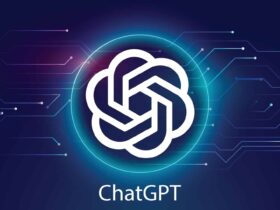Bard, Google’s AI chatbot powered by the new Gemini AI model, faces off against OpenAI’s ChatGPT Plus in a showdown of intelligence.
Both are advanced chatbots trained on massive datasets, offering answers, insights, and creative outputs.
This AI showdown explores their similarities, differences, and strengths in areas like speed, accuracy, and usability.
AI Chatbot Basics
Both are standalone chatbots, unlike Bard’s multimodal counterpart, Gemini Ultra (not yet released). Bard is free, while ChatGPT Plus costs $20 per month.
ChatGPT Plus currently has multimodal capabilities, generating image or video responses based on text prompts. However, Bard will eventually catch up with the upcoming Gemini Ultra.
AI Showdown Testing Methodology
In this AI showdown, both chatbots were given the same prompts. Testing started with simple requests and gradually progressed to more complex ones. Response variations were noted across multiple trials to ensure fairness.
Findings
- Speed: Overall, Bard tends to be slower than ChatGPT, taking 5-6 seconds longer to “think” before responding.
- Accuracy and Limitations: Both OpenAI and Google implement limitations on chatbot responses through a process called “red teaming.” This helps prevent AI bias or misinformation. However, Bard experiences these limitations more often than ChatGPT.
- Example Comparison:
- Chocolate Cake Recipe: Both provide recipes, but Bard copies an existing source with random changes, while ChatGPT includes boiling water (unusual in cake recipes). Baking tests revealed both cakes were functional but not exceptional.
- Tea Information: Both offer basic tea knowledge, but Bard links to articles for further learning, while ChatGPT provides a more extensive answer with cultural significance and brewing techniques.
- Shakespearean Sonnet: Bard offers a brief summary, while ChatGPT gives a deeper analysis based on stanzas.
- Reporter Bio (Author): ChatGPT clearly uses the author’s website and other online sources, while Bard fails entirely.
- Drawing Images: Only ChatGPT can generate images due to its current multimodal capabilities. Bard cannot do this yet.
- Song Lyrics: Bard refuses a Taylor Swift lyric request, while ChatGPT provides it along with analysis, potentially violating copyright due to lack of licensing information.
- Phone Comparison: ChatGPT offers a general comparison but omits important details like pricing and new phone specifications. Bard fails to answer due to outdated training data.
While Bard remains free and catches up to ChatGPT in some areas, it also experiences more limitations due to red teaming and slower response times.
Overall, Bard is capable of competing with ChatGPT Plus, offering accuracy and usability across many tasks. Choosing between them may depend on specific needs, budget, and desired features like image generation. Both advancements showcase the rapidly evolving capabilities of AI language models.
Also Read: Bing Chatbot Misbehaves: Bizarre and Manipulative Responses






